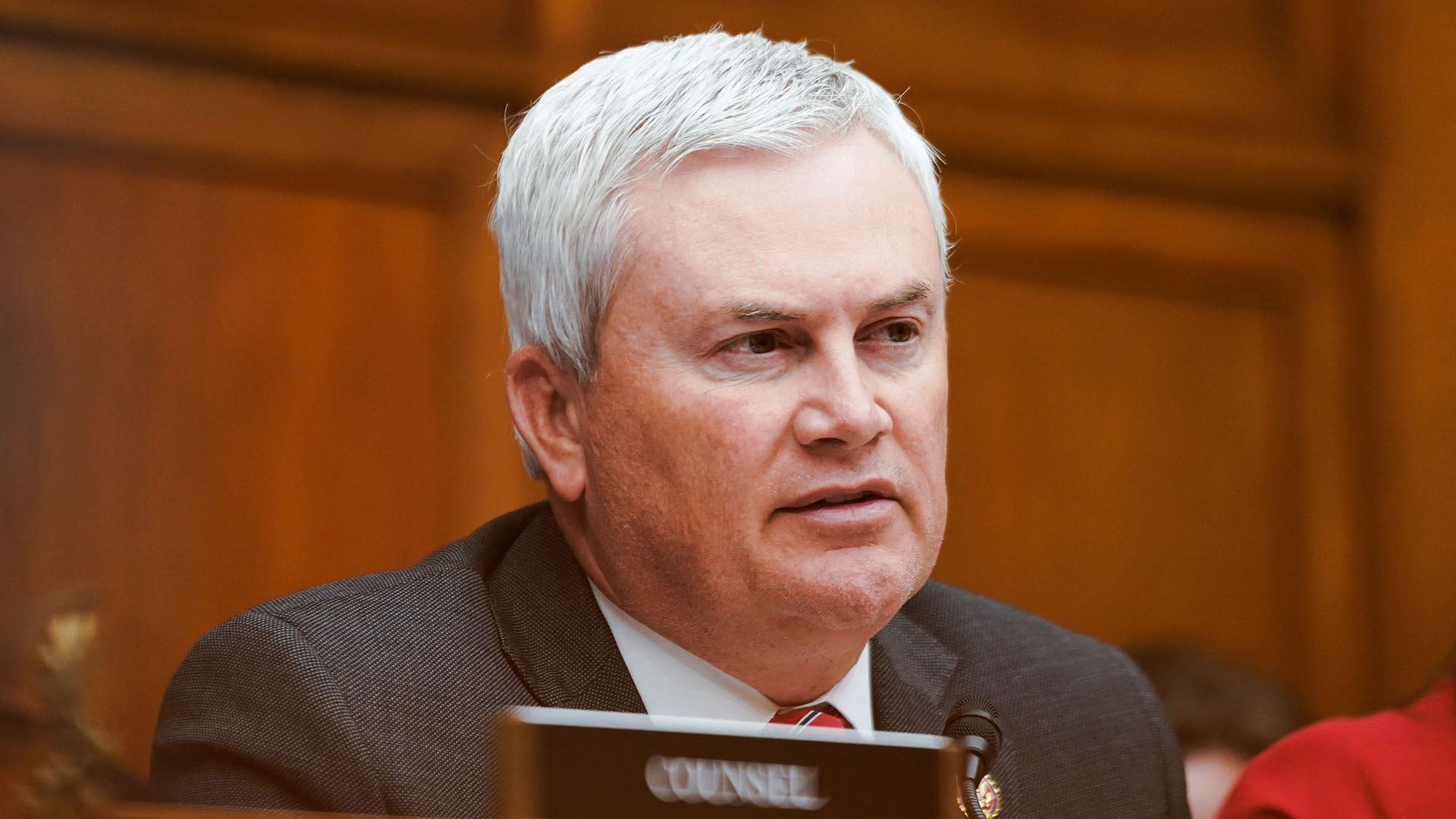


House Republicans are sounding the alarm about a quietly issued executive order that will empower the Biden administration to “open the regulatory floodgates.”
The “modernizing regulatory review” order, which was issued on April 6, will require fewer regulations to undergo the interagency review process, further opening a red-tape spigot that’s been working overtime since President Biden took office.
“Even under pre-existing rules for federal regulatory development, the Biden Administration’s pace of regulation and escalating regulatory burdens has been breathtaking,” House Oversight Committee chairman James Comer and Representative Pat Fallon wrote in a letter to administration officials, obtained exclusively by National Review. The pair goes on to note that the Biden administration has “surpassed by far the cumulative costs and paperwork burdens imposed by the Trump and Obama Administrations—imposing $318.1 billion in new costs and 217.4 million new paperwork hours.”
“The Biden Administration now proposes to open the regulatory floodgates even further,” through the new executive order, the pair warn.
Comer and Fallon, who chairs the Subcommittee on Economic Growth, Energy Policy, and Regulatory Affairs, are demanding that their concerns be addressed during a staff briefing with Office of Management and Budget (OMB) director Shalanda Young and Office of Information and Regulatory Affairs (OIRA) administrator Richard Revesz before May 11.
Currently, “significant regulatory action” is defined as a proposal that would have an annual effect of $100 million or more on the U.S. economy. Such actions are subjected to mandatory formal “interagency review” that is overseen by OIRA. However, Biden’s new executive order increases the threshold to $200 million per year.
“This will shield many high-cost regulations from OIRA cost-benefit scrutiny,” Comer and Fallon write. “With U.S. economic growth slowing and inflation continuing to eat into Americans’ spending power, now is not the time to make it easier for high-cost regulations to evade rigorous economic review.”
The new executive order also changes guidance that currently allows discretionary review for rules that fall below the $100 million threshold but where there are “novel legal or policy issues arising out of legal mandates.” Instead, the new language would allow a discretionary review for “legal or policy issues for which centralized review would meaningfully further the President’s priorities or the principles set forth in this Executive order.” While staff previously made determinations in these discretionary cases, the new executive order grants that responsibility to the administrator of OIRA, a presidential appointee.
These “other significant” rules that fall below the monetary threshold have historically accounted for between 60 percent and 80 percent of all the rules the OIRA staff reviews.
The new order also directs agencies and OIRA to promote “inclusive regulatory policy and public participation” by involving communities that have been historically underrepresented in rulemaking in the process. It also directs OIRA to discourage meeting requests from frequent participants and to instead plan meetings with participants who have “not historically requested such meetings.” The order tasks agencies with promoting “equitable and meaningful participation by a range of interested or affected parties.”
“This language echoes the Biden Administration’s use of the terms ‘inclusivity’ and ‘equity’ as a mantle to pursue left-wing causes,” Comer and Fallon write. “We are concerned it is a smokescreen for promoting improper agency grassroots lobbying to guarantee pro-regulatory allies’ public comments tilt agencies’ administrative records towards such causes—just as in the infamous case of the Obama Administration’s Waters of the United States Rule.”
Comer told National Review in a statement that the administration is “taking action to upend the regulatory review and analysis process and further open regulatory floodgates to serve their own progressive wish-lists.”
“These policies could allow for distorted calculations of projected regulatory benefits and open the door to more economy-crushing regulations,” Comer said. “We are already dealing with an economy damaged by President Biden. Now is not the time for more policies that burden American workers and businesses with more regulatory costs. The Oversight Committee is working to bring transparency to our concerns with the implementation of these policies.”
The letter goes on to warn that a proposed revision to OMB Circular A-4 “threatens to open the cost benefit-analysis process for new rules to massive regulatory distortions.” The revisions, if finalized, “could ensure inflated and distorted calculations of projected regulatory costs.”
“This would open the doors to a vast expansion of economy-crushing regulations in the service of progressive causes,” the letter adds.
In a blog post published the day Biden issued his executive order, OIRA administrator Revesz wrote, “Parts of the federal regulatory review process haven’t been updated since the 1990s, and since then we’ve seen substantial advances in scientific and economic knowledge.”
“These new steps will produce a more efficient, effective regulatory review process that will help improve peoples’ lives—from protecting children from harmful toxins and lowering everyday costs for families, to improving rail safety and growing our economy from the middle out and bottom up,” Revesz adds.
He went on to describe the proposed revisions to Circular A-4 as aiming to “help agencies better account for the value of future regulatory effects and provide the greatest benefits for the American people.”
“Specifically, the revision updates the discount rate that translates future costs and benefits into present day values, provides greater support for analyzing distributional effects, and provides more thorough guidance for accounting for risk and uncertainty,” he wrote.
Biden’s order comes after he issued a memorandum on his first day in office directing OIRA to work with executive branch departments and agencies to “modernize regulatory review.”
